Pocket Money for Kids

The value of understanding money is a pivotal life skill that children need to grasp from an early age. While many parents and adults comprehend money's impact on our lives and financial circumstances, children often view it as an endless resource with magical properties.
As parents, we must impart the genuine value of money. Whether it involves introducing the basics of budgeting or delving into intricate financial concepts with adolescents, the present moment is ideal for initiating these lessons.
This blog explores the fundamental principles that form the bedrock of children's comprehension of pocket money, banking, and financial responsibility.
Is your child struggling to keep up with schoolwork? Are they falling behind? Are they bored in class? Or are you looking for extension work for your child? Check out our eBook to learn more about how we help your child improve academically and build confidence through our in-centre after-school tuition.
Building the Foundation: How much pocket money should my kids get?
Determining the age at which children should receive pocket money may surprise you—it's most beneficial to commence paying children something as soon as numeracy skills begin to develop.
Even paying a modest sum, like a couple of pounds per week, can furnish children with invaluable insights into budgeting and self-control. The ultimate objective is to educate children about managing budgets and making sensible choices regarding their own money too.
Jan, a mother of two, shared her experience, "Around the age of four, my kids began receiving £1 a week for completing minor tasks at home. As they matured, so did their responsibilities, resulting in an increase in their pocket money to £4 per week.
It empowered them with complete autonomy over this money. Whether they desired to spend it on treats or save it, it was entirely up to them. They quickly grasped concepts like change, learning to save for their desired items, even when friends and I considered them extravagant, like fancy skateboards."
Insights into Kids' Pocket Money
Recent surveys offer insights into paid pocket money trends. Across the UK, the reported average amount per child for pocket money stands at £6.20. The city of London leads in generosity, offering £7.65, with Scotland following closely at £7.27.
While some families argue that childhood should remain free of financial discussions, experts assert that children must acquire a sense of financial literacy from an early stage in everyday life. While the frequency and amount of pocket money varies among families, these tips can enrich your child's grasp of money management:
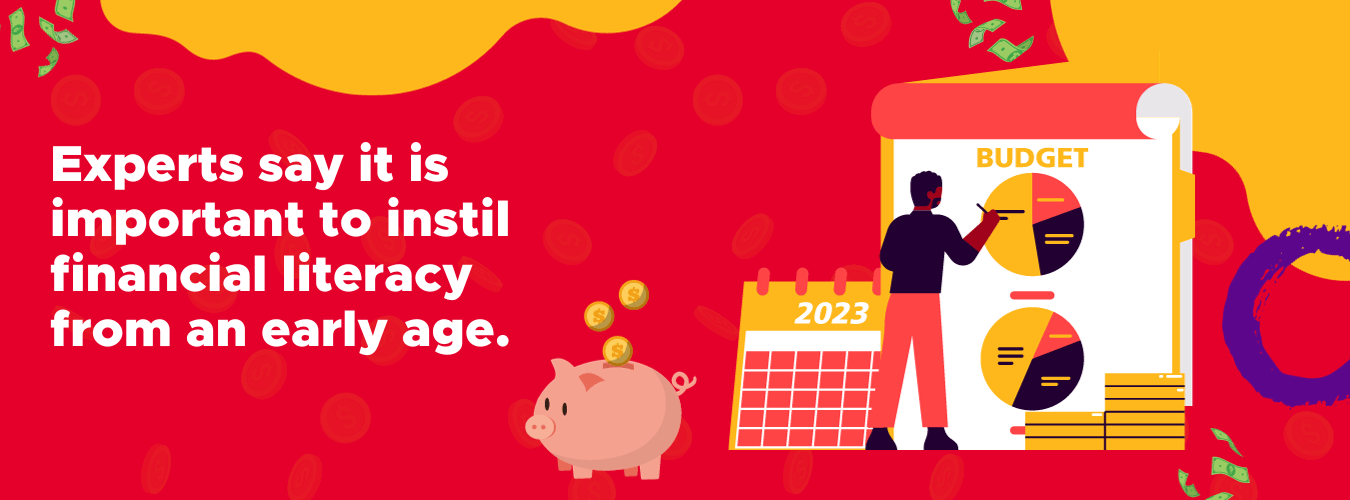
Earning and Managing Pocket Money
Should you desire your child to earn pocket money, consider granting them the option to choose from a set of weekly chores or tasks that pay a weekly pocket money amount, or creating a job list with corresponding payments that pay pocket money. This approach not only empowers them to determine their income but also educates them about the correlation between effort and reward.
Exploring the advantages and benefits of opening a savings account with online access can allow children to observe their funds growing. Younger children might find paying in cash more tangible, while older ones could opt for direct deposits. As they mature, transitioning to paying using an EFTPOS card linked to their bank account prepares them for transactional independence.
Guiding children about spending choices is essential. While you and your family can offer advice, children often learn to manage money best by making decisions on their own. Teaching them basic calculations, such as the value of different coins, equips them with indispensable mathematical skills.
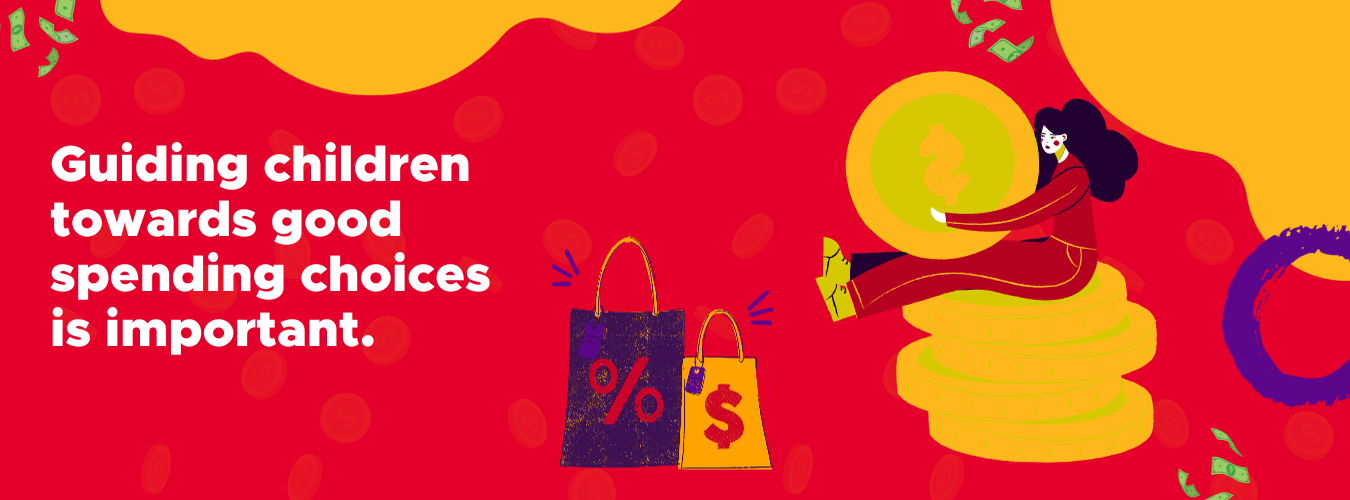
Instilling Saving Habits
Introducing children to the concept of saving holds immense importance. Providing a piggy bank or savings jar for depositing coins and notes is a great start. As your child's age and responsibilities grow, consider establishing a full bank account or savings account in their name.
Learning to save transcends just learning financial habits — it imparts vital life skills like goal setting, maturity, and independence to older children. Encourage them to save for short-term objectives initially, such as a desired toy.
As they mature, they'll grasp the concept of delayed gratification and more control and work towards more substantial savings goals, like their first car.
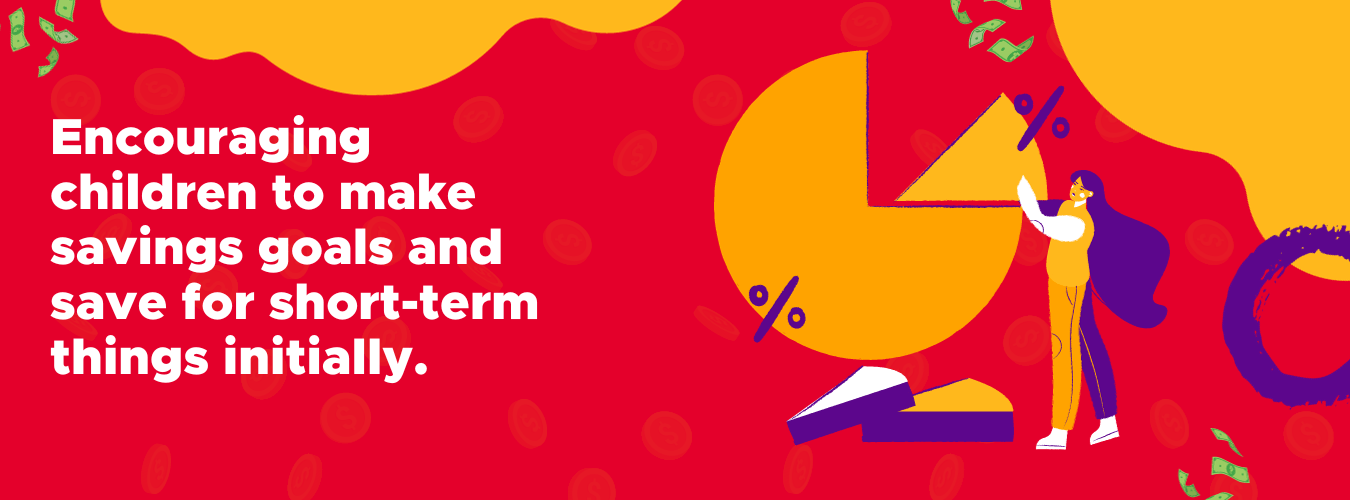
Nurturing Wise Spending
Educating children about responsible spending is pivotal in their financial education. While they may possess the freedom to spend their pocket money, guiding them to make sensible choices can curb impulsive spending and teach children to cultivate good spending habits.
Encourage them to evaluate purchases thoughtfully—do they truly need it? Are there alternatives? Teach them the value of prioritising necessities over desires and have children learn the virtue of delayed gratification. These lessons will foster a thoughtful approach to spending that is invaluable in adulthood.
The Significance of Financial Literacy
Financial literacy is an essential skill that children should acquire early to ensure their readiness to manage their finances as adults. Integrating money and budget-related discussions and activities into their education significantly contributes to their financial literacy.
Engage children in discussions about household budgets, assist in comparing prices while shopping, and basic financial concepts like interest and inflation in an age-appropriate manner. This hands-on method demystifies finances and instils confidence in their own financial circumstances and decision-making capabilities.
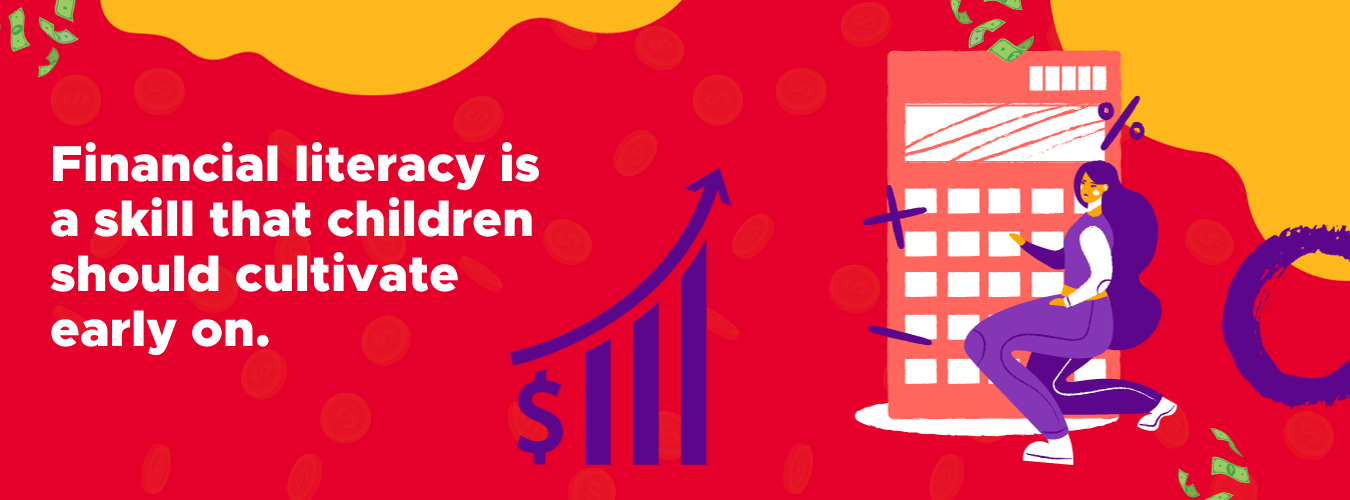
Beyond Pocket Money: Teaching Long-Term Financial Goals
While pocket money imparts immediate budgeting and spending lessons, it's also an ideal platform to set savings goals and introduce the notion of long-term financial goals.
This experience imparts virtues like patience, priority setting, and consistent effort towards a goal. Encouraging dialogues with kids about savings, bank accounts, investments, and retirement broadens their financial horizons.
Striking Balance Between Fun and Responsibility
As crucial as financial education is, striking a balance between learning and enjoying childhood holds equal significance. Encourage children to allocate a portion of their pocket money for leisure activities they cherish.
This practice emphasises the idea that financial responsibility isn’t just sacrificing all enjoyment; instead, it creates a harmonious equilibrium between earning money, saving, spending money, and relishing life's pleasures.
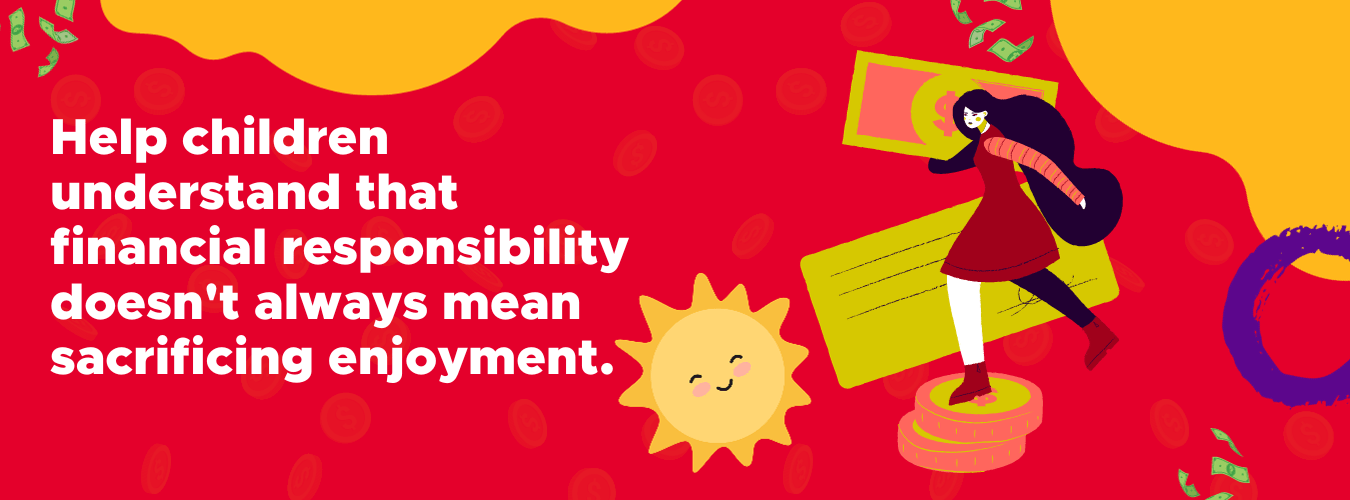
Fostering Financially Empowered Future Citizens
Imparting knowledge about pocket money transcends the act of handing over coins—it's about teaching children and nurturing vital life skills that will guide them through their financial journey. By ingraining responsible earning, spending, and saving habits, parents can prepare their children for the intricate financial landscape they will navigate as adults.
As parents, you wield the power to empower your children with financial wisdom that will set them on a trajectory of accomplishment. A solid foundation in financial literacy, coupled with robust numeracy and literacy skills, constitutes the cornerstone of their education.
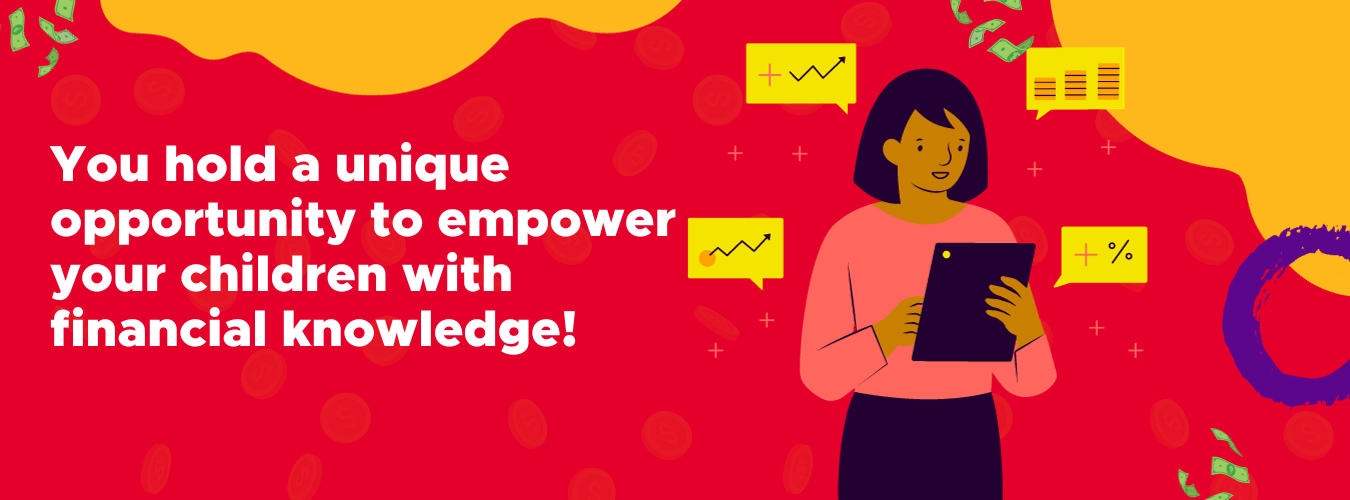
At NumberWorks’nWords, we wholeheartedly support your efforts by offering comprehensive after-school tutoring programmes that will teach your children to cultivate these pivotal skills. Get started today by booking a free assessment or finding your local centre.
Together, we can arm your children and family with the tools required to navigate the intricate financial realm, enabling them to realise their aspirations.




